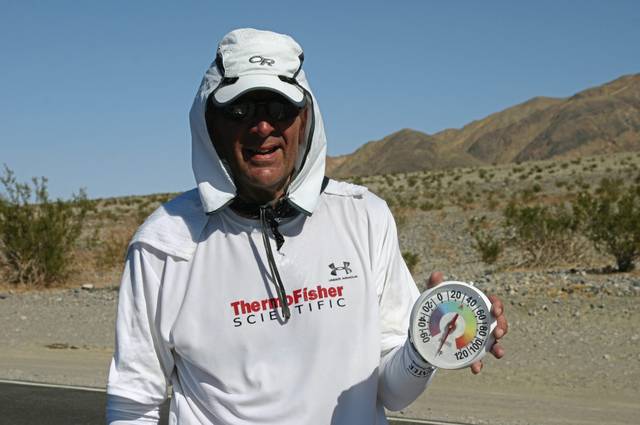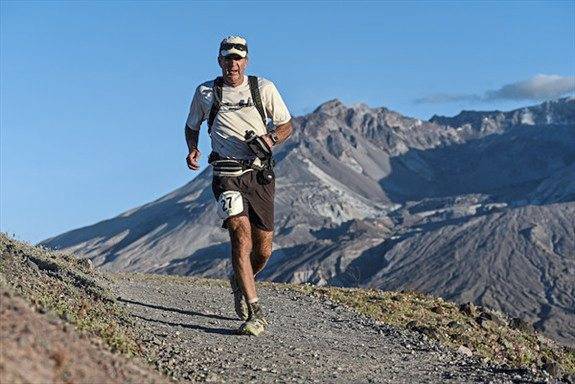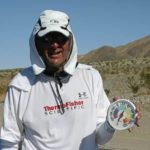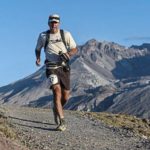Jeff Gleason anticipated the first question — “How stupid are you guys?” — before it could be asked.
Perhaps that’s a bit harsh, until you’re made aware that Gleason and his buddies, Wayne Kurtz and Bill Thompson, are planning to run a self-styled Pittsburgh Marathon, starting out at 1 a.m. Friday.
They’ll strap lamps to their foreheads, make sure their wrist GPSs are fully charged and start running on the outskirts of North Park until they reach the required marathon distance.
“We’ll go out and start wandering around until we rack up 26 miles,” he said.
The idea came to the elite runners when the Pittsburgh Marathon, scheduled for May 3, was canceled due to coronavirus concerns.
Other than adhering to social distancing, why run at night?
“It’s tax season,” Gleason said. “Crazy Wayne (who works in finance) doesn’t want to miss work.”
But that’s OK. “Running at night, it sounds crazy, but it’s fun in a lot of ways,” Gleason said.
The run is one way to make up for the many canceled races the three friends had hoped to enter this spring. They were planning to run in Pittsburgh, a week after doing a 100-mile race in New Jersey.
If that sounds outrageous, consider these achievements:
• Kurtz, 52, who lives in North Park, has bicycled across the U.S. twice and from Canada to Mexico once. But those aren’t his most impressive feats.
In 2013, he participated in the Triple Deca in the Verona region of Italy — 30 Ironman (triathlon) races in 30 consecutive days. One race consists of a 2.4-mile swim in an outdoor pool (temperature as low as 49 degrees), 112 miles on a bicycle (up and down the same hill 60 times) and a marathon. He endured four mishaps, including being hit by car and another bike, being run off the road and flying over the handlebars. He ended up with no broken bones, just a torn-up knee. It’s all in his book, “Stronger than Iron.”
Kurtz was among 21 who started and one of eight who finished. “None of us could walk a step when it was done,” he said.
He’s done more than 100 triathlons, and will help organize single and double triathlons in North Park on Aug. 27-28 and another 30 races in 30 days in New Orleans, starting Oct. 30.
• Thompson, 52, who lives in Moon, once called up his inner Forrest Gump and ran across Tennessee, a distance of 300 miles, “for no particular reason,” he said.
• Then, there’s Gleason, 62, the oldest of the trio, who ran the Pittsburgh Half-Marathon three months after knee replacement surgery that most doctors said would end his career.
Gleason has run since college, and he’s been a consistent distance runner for the past 20 years. He said he’s done 63 ultra marathons — anything longer than a marathon — but he often does 100-milers and once did 200 miles over rough terrain in the Cascade Mountains of Washington.
“Beautiful country,” he said, “but you talk about a brutal course. Out in the middle of nowhere, saw no signs of life other than the race people.”
But all that pounding of earth and pavement took a toll.
“It destroys cartilage in the knee,” Gleason said. “The cartilage was gone and it was bone on bone and bones were chipping.”
Injections and physical therapy helped, but when he sought help, three doctors told him knee replacement surgery would end his career.
“They all said,” Gleason remembers, ‘You know, when that knee’s gone, you’re done. You can’t run on a replacement knee.’ ”
Finally, he met Dr. Richard Berger, an orthopedic surgeon at the Rush University Medical Center in Chicago. Berger’s surgery doesn’t require cutting muscles, ligaments or tendons. Recovery is quicker.
Berger did the surgery and three months later, Gleason ran the half-marathon.
“I could have done the whole thing, but my wife and my physical therapist would have killed me. But I felt really good,” he said.
A year later, he did an 100-miler outside Columbia, S.C.
“The crew kept saying, ‘How are you? How are you? Do you hurt?’
“The only thing that doesn’t hurt is my knee. The knee’s good.”
Gleason said he runs for the challenge and the camaraderie.
“We solved the world’s problems about four times, but nobody listens to us,” he said of their conversations during long runs.
“It’s kind of neat. You talk about anything and everything. Sometimes, you talk about nothing.
“World, business, family, making fun of each other. That’s always a good way to pass the time.”
But mostly it’s the challenge.
“I could care less if I come in fifth, 15th or last,” he said. “You get that voice inside of your head that tells you you can’t do something.
“Limping along, dragging along, but when you get done, you say ‘I set a challenge and beat the voice again.’
“It’s a really good feeling that’s hard to explain.”











